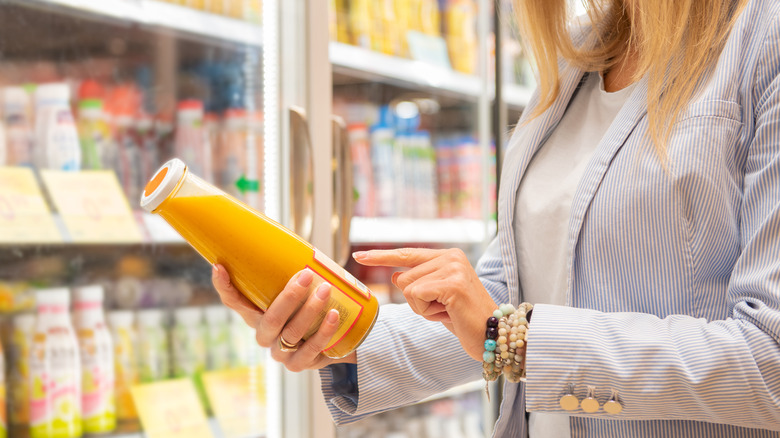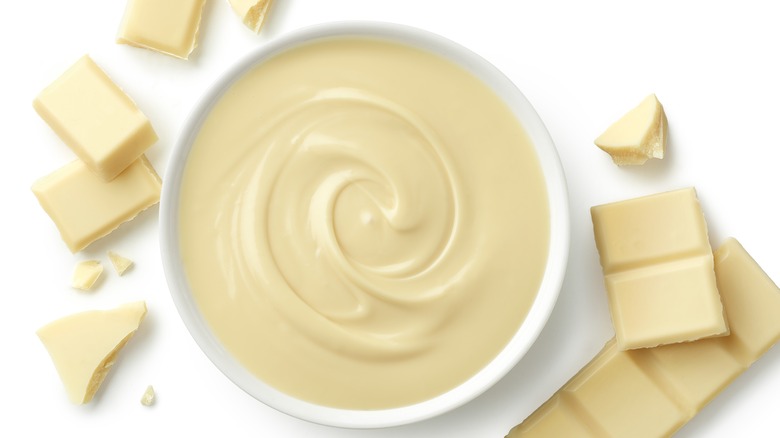This Common Food Additive Is Now Banned In The EU
There are all sorts of additives used to improve or maintain the quality of the foods we eat. However, they often consist of synthetic chemicals that aren't always healthy, ultimately leading some ingredients to be banned following research on their effects. Most recently, the USDA reported that the European Commission banned the food additive titanium dioxide, although the preservative remains a mainstay in the United States.
It's fair to wonder whether there is a reason why additives are banned in Europe but not in the U.S. In short, the answer would be yes. According to Everyday Health, chemical safety processes in the EU focus on prevention and avoiding risk entirely, whereas the U.S. evaluates the probability of hazard. Lobbying — along with a lacking system that re-evaluates previously approved additives — are also responsible for why fewer additives are banned in the U.S.
In addition to titanium dioxide, additives listed by the Advisory Board that are also banned in Europe but continue to be used in the U.S. include potassium bromate (oxidizing agent), azodicarbonamide (whitening agent), butylated hydroxyanisole and butylated hydroxytoluene (flavor enhancer), brominated vegetable oil (flavor enhancer), and red dye No. 40 and yellow food dyes No. 5 and No. 6 (coloring agents). But, why are these additives so bad?
Titanium dioxide has been deemed carcinogenic
Like most additives, The Guardian reports that the whitening agent dubbed as titanium dioxide (E171) is a potential carcinogen, meaning that it has cancer-causing potential. An odorless powder, titanium dioxide is used primarily to give a pearly opacity to candies, gum, chocolate, pastries, coffee creamers, and even edible glitter, but Healthline explains that it can also be used to enhance the whiteness in toothpaste, sunscreen, plastics, and paint.
Despite the fact that the chemical is used in miniscule doses, the European Food Safety Authority concluded that titanium oxide can accumulate in the body, resulting in potential neurotoxicity, inflammation, and even damage to DNA, which could lead to the formation of cancer cells.
Interestingly, Grand View Research notes that the global titanium dioxide market doesn't show signs of slowing down, but rather an increase of 6% in the next five years despite bans in the EU. While that may sound bleak, IBM shares that many brands are starting to take note of consumer demand for more natural products, which could change the future of food additives.

